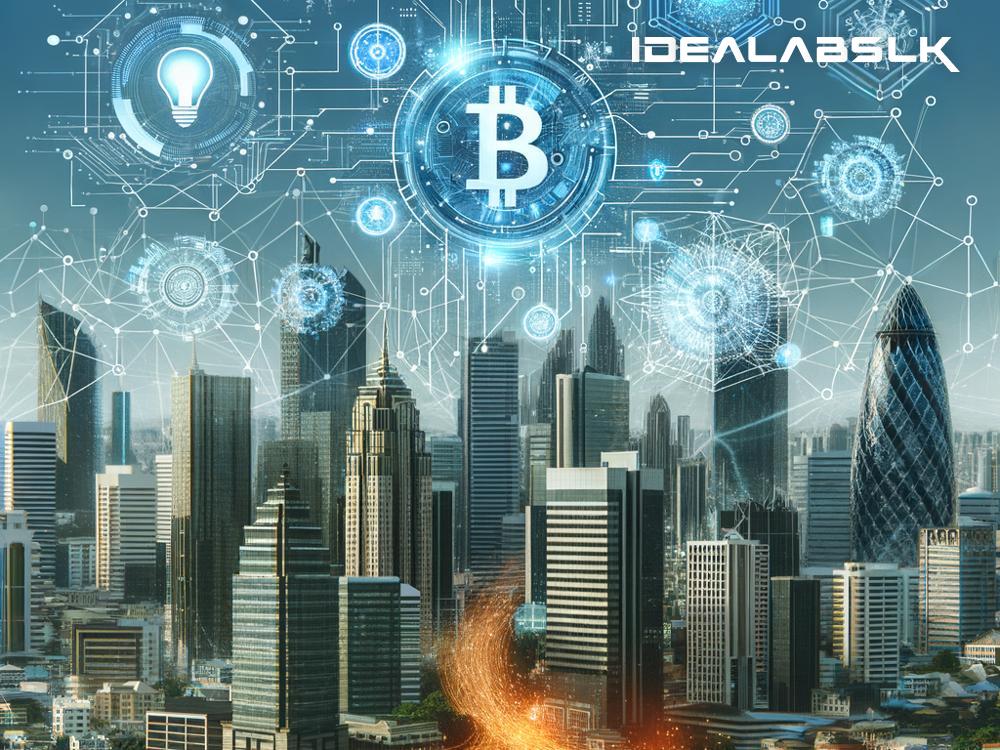Decentralizing Property Investment: A Dive into Blockchain and AI in Real Estate
In an era where technology continues to revolutionize industries, the real estate sector is no exception. Among the cutting-edge developments reshaping this age-old market are Blockchain and Artificial Intelligence (AI). These technologies are not just buzzwords but powerful tools that are decentralizing property investment, making it more accessible, transparent, and efficient. Let's unpack these concepts in simple English and explore how they're transforming real estate from the ground up.
Understanding the Basics: Blockchain and AI
Before we dive deeper, let's break down these technologies to their basics. Imagine blockchain as a digital ledger or record book that’s shared across a network of computers. Each transaction or change is recorded in a "block" and linked to the previous one, creating a "chain". The beauty of blockchain is its transparency and security - once something is recorded, it can't be altered or deleted, making it a reliable source of truth.
On the other hand, AI is like a very smart robot that learns from data. It can analyze patterns, make predictions, and even make decisions based on the information it has. In the context of real estate, AI can help in predicting trends, estimating property values, and personalizing customer experiences.
Blockchain: Decentralizing Property Investment
Traditionally, investing in real estate has been a game for the wealthy or well-connected, partly because of the large sums of money needed upfront and the complexity of the investments. Blockchain is changing the game by making property investment more accessible and democratic. Here’s how:
-
Tokenization: Imagine owning a piece of a building like you own shares in a company. Blockchain allows for the creation of digital tokens that represent ownership of a fraction of a property. This means you can invest in real estate with much smaller amounts of money, opening up opportunities to a broader range of investors.
-
Transparency and Security: The unchangeable records of blockchain provide a clear history of transactions, ownership, and property details, reducing fraud and making the buying process safer and more transparent.
-
Efficiency and Cost Savings: By automating processes and removing middlemen, blockchain can reduce the time and money spent on transactions, making the market more efficient and potentially leading to lower costs for buyers and sellers.
AI: Adding Intelligence to Real Estate Investments
While blockchain is reshaping the structure of property investment, AI is adding a layer of intelligence, further enhancing the decision-making process. Here’s how AI plays a role:
-
Market Analysis and Predictions: AI algorithms can sift through vast amounts of data to identify market trends, predict future property values, and suggest the best times to buy or sell. This helps investors make more informed decisions.
-
Personalized Recommendations: Based on an individual’s preferences, financial history, and other factors, AI can offer personalized property suggestions, streamlining the search process and improving customer experiences.
-
Automated Property Management: From setting optimal rental prices to predictive maintenance, AI can help property owners manage their investments more efficiently, increasing profitability and tenant satisfaction.
The Future of Real Estate Investment
By combining blockchain and AI, the real estate industry is on the cusp of a revolution. These technologies promise a future where property investment is more accessible, transparent, and intelligent. However, it's important to note that these innovations also come with challenges. Regulatory hurdles, technology adoption rates, and concerns about privacy and data security are among the issues that need to be addressed.
Nevertheless, the potential benefits of integrating blockchain and AI into real estate are too significant to ignore. As these technologies mature and become more widely adopted, we can expect to see a more decentralized, efficient, and user-friendly real estate market. For investors, this means more opportunities and tools at their disposal to make smart, data-driven decisions. For the average person, it could mean that the dream of property ownership becomes more attainable than ever before.
Final Thoughts
The integration of blockchain and AI in real estate is more than just a trend; it's a transformation that is reshaping how we invest in, manage, and interact with property. By breaking down barriers to investment and adding layers of intelligence to the process, these technologies are paving the way for a more democratized, efficient, and transparent real estate market. As we stand on the brink of this new era, one thing is clear: the future of real estate investment looks brighter than ever.

